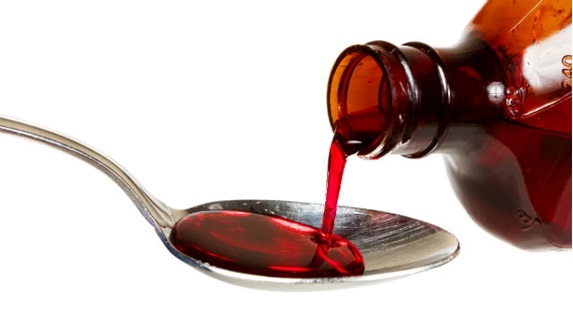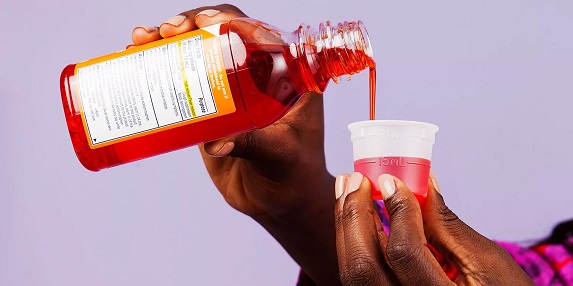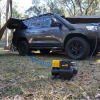Health & Beauty
Dealing with a Nagging Cough: Cough Medicines That Can Benefit Your Recovery
Although most coughs usually clear up on their own within a few weeks, they can be annoying to deal with by the time they resolve. If you struggle with an incessant and unpleasant cough that makes you feel lousy, you may consider taking an OTC medicine to help ease the symptoms. However, not all cough medicines are the same, and which one is best for your particular case depends on the type of cough and what’s causing it.

What’s more, some types of coughs shouldn’t even be treated with cough medicine as the cough is helping to clear your lungs so you can breathe better. This is the case with a cough caused by smoking, asthma, pneumonia and chronic bronchitis. If this is not the reason why you’re coughing and the cough interferes with your daily life or is making it hard to sleep – then you might benefit from one of the following types of cough medicine.
Suppressants for Dry Coughs
If you’re nagged by a dry, hacking cough, then the best way to find relief is to use a cough suppressant. Cough suppressants work by blocking the natural cough reflex. While they don’t completely eliminate the urge to cough, they do reduce the intensity and frequency of coughing. With that being said, the best types of cough medicine for dry cough are the ones that contain some type of suppressant, like for instance, pholcodine or dextromethorphan. Bisolvon is a cough medicine that contains the active ingredient dextromethorphan in addition to honey and lime that help soothe the throat. Other cough suppressants can include ingredients such as camphor, eucalyptus oil or menthol which also have a soothing effect on the inflamed tissue lining the throat.

Expectorants for Chesty Coughs
A cough accompanied by phlegm can actually be a good thing as it helps to clear all the mucus from your airways. But if it keeps you from sleeping, you can use an expectorant to find relief. Cough medicine containing an expectorant, like for instance guaifenesin, help thin and loosen the mucus so that it’s easier for the body to get it out of the system.
Combination Medicines
If your cough is accompanied by other cold or flu symptoms, like for instance a stuffy nose or fever, you can take a combination of medicine. This may be a cough medicine that also includes decongestants for a stuffy nose or painkillers for treating fever and pain caused by a sore throat. If your cough is triggered by allergies, consider getting a cough medicine that contains antihistamines that can relieve the itchiness. However, if your main symptom is coughing, combination medicines can have a drying effect which can make the mucus thicker and harder to clear, making your cough worse. In addition, if you have high blood pressure or suffer from heart disease, be careful of medicines containing decongestants as they are known to raise blood pressure.

Topical Ointments
If you have a mild case of the cough, then you can consider a topical ointment to help you relieve the pain in your throat and chest. Camphor and menthol are such ointments that you can rub on your neck and chest. Their strong-smelling vapours and analgesic effect may ease your cough and help open up your stuffy airways. You can also find them in liquid form to use with a vaporiser that makes steam you can breathe in.
Use Cough Medicines Safely
The biggest mistake you can make is grabbing a bottle of anything that says “cough medicine”. First of all, check whether it’s an expectorant or suppressant. In addition, read the ingredients list thoroughly for anything you may have a bad reaction to or which can interfere with other medications you’re currently taking.

What’s more, every cough medicine shouldn’t be used for more than 7 days. If your cough doesn’t get better after a week, you may be dealing with a more serious problem. In that case, see your doctor immediately.
Another mistake people taking cough medicine make is to get too casual about it. Skipping a dose, not measuring properly and drinking straight from the bottle is not smart or safe. Not only can this make the medicine less efficient, but you also risk ingesting too much of it. And even safe medications like cough syrups can be very dangerous in high doses, leading to serious problems like brain damage or seizure.
If you’re using a cough syrup or other medicine, make sure that you keep it away from young children which can ingest high doses of it accidentally. If you’re purchasing a cough medication for your child, make sure that it’s appropriate for your child’s age. Children younger than 4 shouldn’t be given cough or cold medicine. For kids 4 to 6, ask your doctor for a recommendation, and always make sure to stick to the correct dose listed on the label.
Some cough suppressants and expectorants are known to make people drowsy, so read the label for this or similar side-effects and avoid driving.
As a proud Pisces known for the selflessness, Olivia joined up the blog fascinated by the idea she can help readers with info on topics and their related benefits like health and beauty, travel, food and drinks. When not writing, she likes to call it a day reading comic books in the company of her Tonkinese cat Chatty or binge-watching The Big Bang Theory with her SO like the nerd she is.





















